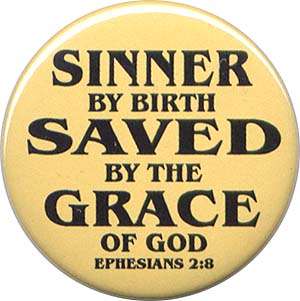"To these, we did not yield any submission, not even for a second, so that the truth of the Gospel - the freedom that is ours in Christ - might be upheld in you... For those who seemed of influence added nothing to me". Galatians 2:5 & 6.
So, the opening question this entry is, given what Paul says in this passage, how often do you think the church, when following the Gospel, handed itself over to a regime or religious body which sought to place it under a 'yoke' of requirements that were foreign or contrary to the message and faith that was vital to genuine spiritual life?
This is key right now, and here's a "nudge" in respect as to why. Taken from a piece published in a regular magazine in the UK this past week:
"Today, the world is rushing headlong into a global technocracy with universal surveillance, led by godless organisations with specious goals, such as the Chinese Communist Party, the United Nations (and its agency The World Health Organisation), the World Economic Forum, and the Bill & Melinda Gates Foundation. Increasingly, we are seeing science for science’s sake, and medicine for medicine’s sake" (Mark Pickles in CW Magazine).
How does that read to you?
Does it appear "strong" in its claims, perhaps excessive in the view it's taking?
What if you discovered, as was the case, that there were perfectly good, Nobel-prize winning materials prior to this last year amidst generic anti-viral drugs that were more effective at dealing with Sars - type infections than the current vaccines, and that there were sure procedures for dealing with such an outbreak tested over decades, and that all such wisdom was actively suppressed in favour for the current state of affairs?
Does that begin to put the magazine quote in some perspective?
What do we then make of Paul's refutation of presumed authority?
Freedom is so precious when it becomes the first victim of such targeted oppression and unwarranted tyranny.
So, what happens when the 'sword' of the powers and authorities which surround us become a means for such explicit miss-direction and abuse?
Back to the church...
Last time, I raised the troublesome example of those in the 1500's who sought to take the freedom the Gospel brings and employ this as a means to bring all manner of chaos ("inner" leading) in respect to the structure and focus of the Christian community, but there was a 'flip side' to that excess. They were known as the Rationalists - those who believed that they could use their own mental capacities and judgement to reason and thereby determine what was worthy of adherence in respect to how they lived and what they believed.
This would become the grounds for our culture's contemporary scepticism and secularism towards the very nature of the truth and, just like its subjective twin, it sought to de-throne the genuine nature of the message and expression of Christianity by a continuing process of questioning and refuting the 'foolishness' of scriptural truth in the light of what was determined expidient, and thereby what God requires of us - the bedrock of faith, in what we say and do, in the immovable and unchanging message of Jesus Christ.
As Luther worked to uncouple the church from both the presumed authority of state and church which refused to conform to the Gospel, he was also careful to avoid the equal dead ends of supposedly subjective and objective religion which both rejected a right and true relationship to the solas of the faith.
So, let's go back to our contemporary example. We live in a moment when there is an almost absolute trust in the ability of science to provide us with what's necessary to overcome our escaping the precipice of a "deadly" pandemic, so long as we properly adhere to what's 'required' (demanded) of everyone - any questioning (in respect to saying that there is actually another, better way) of this is viewed and reported as unacceptable.
This is an exact match, as I've noted before, to the imposition of circumcision upon gentile believers in the early church... It simply doesn't fit with the nature of the life and liberty God has given to each of us, either as creatures made in His image, or as those made afresh children of God by the redemption in His Son. That is why Paul's words quoted above should be the Christian bench mark in this particular crisis, because anything less than that is a betrayal of our faith to both subjective (what people are feeling - fear) and rationalist ("science" before faith) approaches to life, resulting in our yielding up the glorious freedom that is inherently ours in Christ.
Those are strong words, I know, but they are necessary, because we have been betrayed by the powers over us, secular and spiritual, in respect to what is good and true, and if we are ever to see a healthy condition in these spheres of life once more, there must be a reception of this admonition and an appropriate response to it to genuinely renew us in both our national and spiritual lives.
To quote from the article once again, "As the Church used to teach, and it should be teaching today, "scientia" is partial knowledge that inevitably gravitates to evil if it is detached from "sapientia" (wisdom) and "prudentia"(vision)". This is why theology, which seeks to facilitate a three-fold chord for all of these, was known as the 'Queen of sciences'.
Relate this to the present circumstances. There is a 1 in 1.8 million chance of a person under 80 dying from the virus. There is a one in 50 chance of a similar age group (under 60) suffering mortal adversity/death from the new vaccines.
So, how do we have 'ears to hear'...?
The Apostle Paul understood that the Gospel would bring down the strongholds which sought to profess certainty in any creed promising a haven contrary to the one furnished by the Cross. What is heinous about the Judaising 'rationalism' which overtakes the Galatians was the insidious injection of a system which kills the imperative - Christ alone, replacing this with a poison of confidence in the flesh.
It would be terribly wrong to view what we're dealing with right now as a cultural blip - a 'flesh wound', so nothing of enduring concern. This horror has cut into the very marrow of our common mind-set, our spiritual imperatives, and the ramifications are truly awful.
The evil we are dealing with is not going away.
The 'right-think' has now been deeply embedded - the majority believe we must conform to this 'science'. Whatever our station, our culture, we must offer of ourselves at this altar. "Freedom" will now be determined by our continuing to abide by these laws in everyday activities, including at church - that is what makes this incursion so perilous. The liberties which are gifted to us by the highest authority have been expunged and deemed "non-essential", removed by a body that supposes it has the right to continually do this, even when all of the empirical material available refutes such a dreadful edict.
Actual knowledge is no longer required when unwarranted fear murders the magnificence of unparalleled love.
So, to bring all this home to each of us, dear brother and sister...
The Christian is one called to something much more imperative than such nonsense - a vocation of renewal in thought and action that befits the nature of total redemption; a renewal in thought and action that refutes and negates the incarcerating processes of any 'system' that seeks to reduce our true nature and purpose to something imposed by men (Romans 12:2).
"Everything a man does", notes C S Lewis, "is either a lawful exercise or an abuse of authority granted exclusively by divine right".
The time has truly come upon us for more than an occasional 'expression' of concern!
The Gospel divides us from error and folly. IF our application of our faith isn't doing this, then we are already cut off from Christ! (Galatians 5:4).
People currently believe such abuse (trust in another power) is acceptable because they have been instructed this must be so for the greater good, but it is a dreadful lie.
Manacled by such "power", people will only escape the snare of foul submission when the falsehood of what is occurring here is exposed, and this 'bright appearing' needs to commence with us.
The Apostle of Jesus Christ exhorts us to NOT submit to any jurisdiction which seeks to usurp the freedom given in God's saving work. He makes clear that such workers of error are NOTHING to him, or the Kingdom of God - nothing but those who must be refuted and rejected, for they have NO PLACE or hold in the bride that is purchased by our beloved's blood.
If the current administration has acted in this fashion amongst us, then we must uphold a testimony that says WE belong to another.
If we conclude that these forces have an acceptable sway in respect to our faith and practice, then we have sorely departed from where God calls us to be.
My longing is that we come home.
Christ is calling us to return to His glorious freedom.




